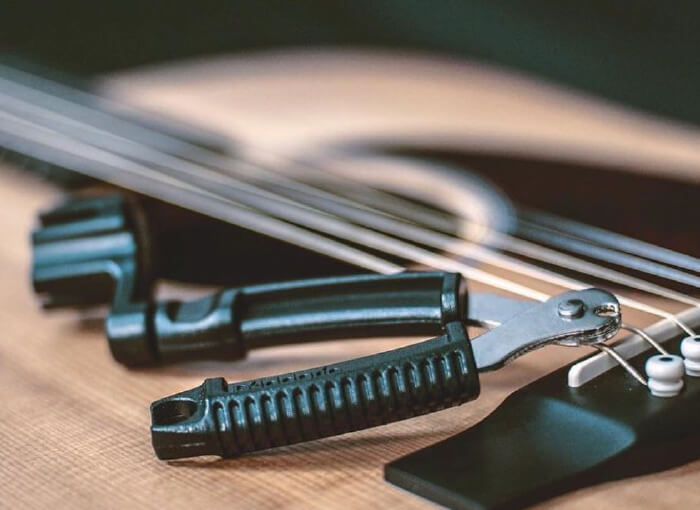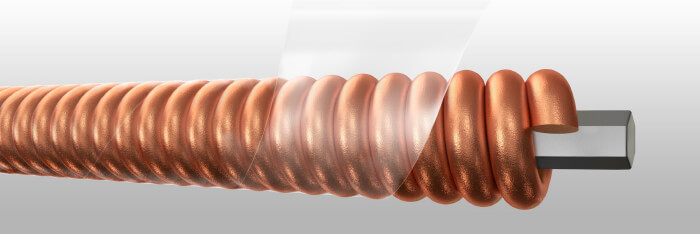When to change strings is a question all guitarists need to ask. The answer, like many things related to guitar playing, is different for everyone. When to change strings depends on a number of factors, but there are some tried and true guidelines you can use to help you figure it out.
Since strings are made from different materials and optimized for various purposes, the type and brand of strings and how you care for them will determine how long they last and when they need to be changed. Some guitarists play their strings for a set amount of time before changing them, while others go by tone, look, or feel. A few even change their strings for every performance.
As you read through these guidelines just remember, no matter when you change your strings, once they're changed, they need to stretch, adjust, and be retuned. How much or how many times you need to do this is unforeseeable, but giving yourself a few hours or a day to stretch out and play the strings should do it.
WHEN THEY'RE NOT SOUNDING
OR PLAYING NICELY ANYMORE
For those of us who do not play a predictable number of hours, shows, or lessons, it's better to analyze the look, feel, and sound of your strings. This is, quite obviously, due to the fact that without predictable wear and tear, you won't be able to know when it's time to change tour strings. Therefore, when you can't count on time as a constant for string wear, you have to rely on your own analysis.
For example, if you haven't changed your strings in a while, but you also haven't played that much and they still sound good to you, then you might as well wait and save yourself some money.
On the contrary, if you've been playing often, how long you've had the strings doesn't much matter if your strings no longer sound good, feel grimy, or look rusted.
To understand better what you're looking for, here are a few tips for checking if your strings need to be changed:
- If your strings no longer sound full or don't hold their tuning, then it's time to change strings.
- If your strings look or feel dirty, but still sound good and hold their tuning, you may want to replace them, but they do not necessarily require replacement. This is a gray area where you can use your judgment. Consider simply cleaning the strings and see if that does the trick.
- No matter how long you've had them on your guitar, if your strings sound clear, stay in tune, and don't look or feel dirty, they likely have life left in them and should not be changed.

WHEN YOU WANT A NEW FEEL OR TONE
Changing strings can also be fun, instead of just maintenance. Many players like trying different string gauges, materials, and styles of strings. You have to try to really know what you like. So aside from keeping your strings in top condition, you may decide to change strings when you just feel like experimenting. To maximize your dollar, you might want to wait until your current strings are worn, but that's really up to you.
Please note that changing string gauge or any other significant difference in size, tension, etc. may require some adjustment of your guitar and a professional setup could be in order.
WHEN YOU'RE PERFORMING OFTEN
Besides wear or experimentation, you might want to change strings if you're planning ahead. In anticipation of your next few performances, when you may not have the opportunity to change strings in between, it's a good idea to get ahead of the wear and tear issue and change your strings before all of them, even if it might not quite be time yet.
Regardless of when you change strings, it's always good to have a backup set on hand in case you break one. Though older, more worn-out strings are more prone to breaking, sometimes strings can surprise you. You'll want to be ready if and when that does happen.
Can I make my strings last longer?
You can extend the life of your guitar strings if you clean them after use. Removing any moisture contracted from the air prevents rust. If you don't wipe your strings down, that rust, along with skin debris, will fill in the windings causing the stings to deaden. A towel can help remove oil and skin debris, but string cleaning products area always the best option.

You'll also find that you can get longer life out of strings that are constructed differently. For instance, flatwound strings, by nature of how they're made, allow less debris between the windings. This will extend the life of the strings.

Along the same lines, some strings are coated, which extends their life. D'Addario XT and XS are some of the best coated strings out there and are especially helpful for gigging musicians who can't take the time to change strings constantly. If you'd like to get the most bang for your buck and change strings less, check out those sets.
RECOMMENDED FOR STRING CHANGING
The Worlds Leading String Recycling Program
Did you know that musical instruments are not recycled through municipal recycling programs? It is estimated that more than 1.5 million lbs. of instrument string metal could be put into landfills every year.







